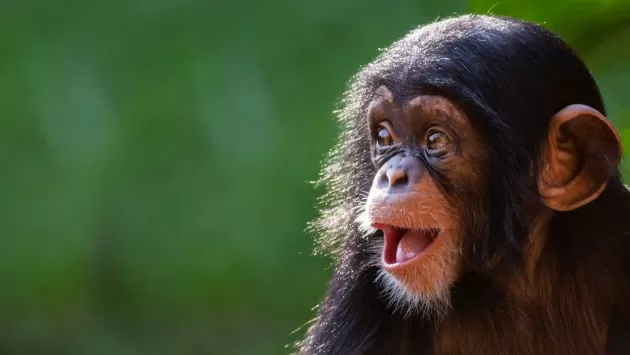Even in the face of scarce resources, mother chimpanzees never completely abandon play with their children. This is a heartwarming example of the strong bond and dedicated care that these amazing primates have for their young.
Chimpanzees, one of our closest relatives in the animal kingdom, are known for their intelligence and social behavior, with complex social structures and family dynamics similar to our own. They have a strong sense of community and rely on each other for survival, especially in the wild where resources are limited. Despite these challenges, chimpanzees have developed unique ways to ensure the well-being of their offspring, even in the most difficult circumstances.
One such example is the dedication of chimpanzee mothers to play with their children, regardless of the availability of resources. A recent study conducted by a team of researchers observed wild chimpanzees in the forests of Uganda and found that even during periods of resource scarcity, mothers continued to engage in playful behaviors with their young.
The study, published in the journal Philosophical Transactions of the Royal Society B, focused on the behavior of chimpanzee mothers in the Kibale National Park during a time of food shortage. The researchers observed that despite the scarcity of food, the mothers did not completely stop playing with their offspring. They would instead modify their play behaviors, adapting to the changing circumstances. For example, instead of chasing and wrestling, they would engage in more gentle and relaxed play, such as grooming and tickling.
This adaptability and resilience in the face of scarcity is not only impressive but also crucial for the survival of the species. Play is an essential part of a chimpanzee’s development, helping them to develop social skills, coordination, and problem-solving abilities. It also strengthens the bond between mother and child, creating a sense of security and trust within the family group.
But what motivates these mothers to continue playing with their young even when resources are scarce? The answer lies in the strong maternal instinct that chimpanzee mothers possess. For them, play is not just a form of entertainment, but also a way to teach and bond with their children. It is a way for them to pass on important skills and knowledge that will help their young thrive in their environment.
The researchers also noted that the level of playfulness between mothers and their offspring varied depending on the age of the child. Mothers with younger children engaged in more play, while those with older children focused more on providing food and protection. This shows that chimpanzee mothers are not only attentive to their children’s physical needs but also their emotional and social needs.
The study also shed light on the role of grandmothers in chimpanzee communities. Grandmothers were found to play a crucial role in helping mothers care for their offspring during times of scarcity. They would often provide food and support, allowing the mother to take a break and engage in play with their children.
This study is a testament to the incredible resilience and adaptability of chimpanzee mothers, and it also highlights the importance of play in primate development. It is a reminder that even in the face of difficult times, the bond between mother and child remains unbreakable. As we continue to learn more about the behavior of our primate relatives, we are reminded of the importance of protecting and preserving their habitats and communities.
In conclusion, the study on the play behavior of chimpanzee mothers during times of scarcity is a heartwarming example of the dedication and love that these animals have for their children. It teaches us that even in the toughest of circumstances, the bond between a mother and her child is unbreakable. Let us continue to learn from the amazing primates that share our planet and work towards creating a better world for all species.

